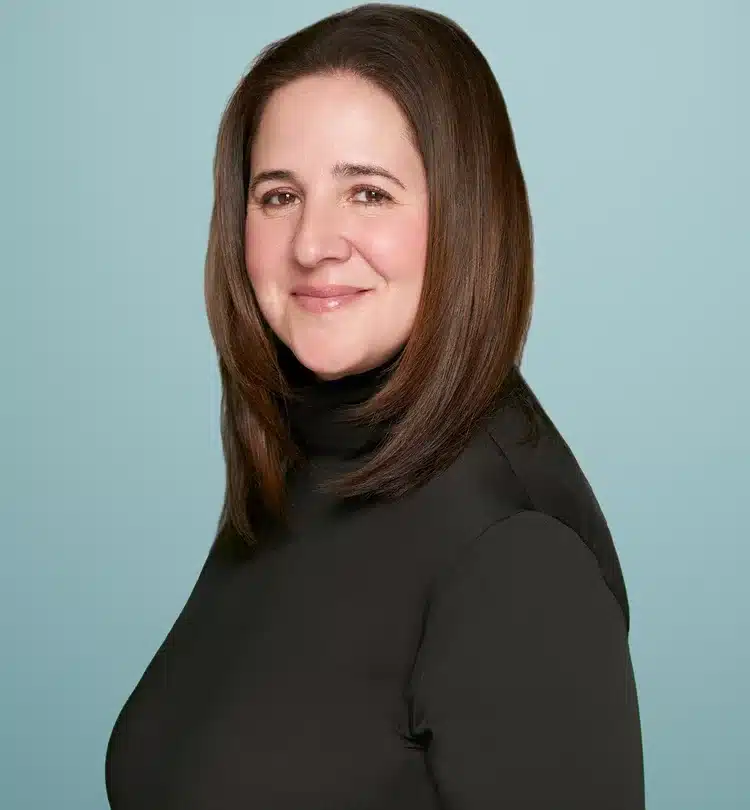
clinical director
Amanda Sacks-Zimmerman, Ph.D., ABPP-CN
Board Certified Neuropsychologist
Dr. Sacks-Zimmerman is a Clinical Associate Professor of Neuropsychology in Neurological Surgery at Weill Cornell Medicine, which she first joined in 2013. She has assessed and treated neurosurgical patients with a variety of disorders. She has extensive experience in the treatment and research of the cognitive impact of brain injury.
Dr. Sacks-Zimmerman uses cognitive behavioral therapy and cognitive remediation to treat a variety of patients who suffer from cognitive and emotional difficulties. She focuses on utilizing strengths and optimizing functioning even in the context of serious neurological illness. Patients find hope, clarity and life meaning in this approach. She will bring this life-force approach to working with patients of all backgrounds at Acheron.
A message from Amanda
We all experience moments of feeling “off,” overwhelmed, or not quite ourselves cognitively. To make sense of these struggles, we often turn to labels like “brain fog,” “ADD,” “cognitive dysfunction,” or “mental overload.” While these labels might describe what you’re feeling, they don’t always help us understand what’s actually contributing to these experiences – or how to navigate through them.
These labels can also become self-fulfilling. If you believe your cognitive abilities are declining, you might start avoiding certain tasks, noticing difficulties more frequently, or doubting your capabilities. Let’s break that cycle!
Together, we’ll help explore what’s holding you back and develop specific, practical strategies to help you function at your best. We’ll use cognitive exercises, tailored interventions, and a strength-based approach to improve flexibility in thinking, problem-solving, and self-awareness. My goal is to help you cultivate a strong cognitive foundation – so that even when challenges arise, you’ll have the tools and confidence to stay centered and move forward
My Approach
Our work together begins with a comprehensive assessment to gain a deeper understanding of what may be contributing to your cognitive challenges. This includes exploring potential sources of difficulty, identifying cognitive and emotional strengths, and recognizing patterns of resilience and past success. We also examine how emotions, perceptions, and external stressors interact with cognitive function.
From there, we collaborate on setting clear, achievable goals that target your specific cognitive “Achilles’ heel” while leveraging your existing strengths. Throughout treatment, we’ll use structured exercises, strategic interventions, and practical tools to help you develop cognitive flexibility and efficiency.
My approach is non-judgmental, non-pathologizing, and entirely strength-based. I believe in working with you as a whole person, rather than focusing solely on challenges. Through this process, you’ll gain greater insight into your cognitive style, build confidence in your abilities, and develop strategies that support your long-term success.
Education & License
American Board of Professional Psychology Certified in Clinical Neuropsychology, ABPP-CN (#6912)
New York State Psychology License #017431-1
New Jersey State Psychology License #35SI00726100
Neuropsychology Postdoctoral Fellow Mount Sinai Medical Center, NY, NY (9/2006 – 8/2008)
Geropsychology Postdoctoral Fellow University Behavioral Healthcare, UMDNJ, Piscataway, N.J. (9/2005 – 8/2006)
Ph.D., Clinical Psychology, Fairleigh Dickinson University, 2006
PRONOUNS: she/her
SPECIALTIES:
- Cognitive Remediation
- Cognitive Behavioral Therapy
- Integrated Neurocognitive Treatment
- Acceptance and Commitment Therapy
MODALITIES:
- Attention Process Training
- Problem-Solving
- Goal Management
- Metacognitive Strategies
Affiliation

